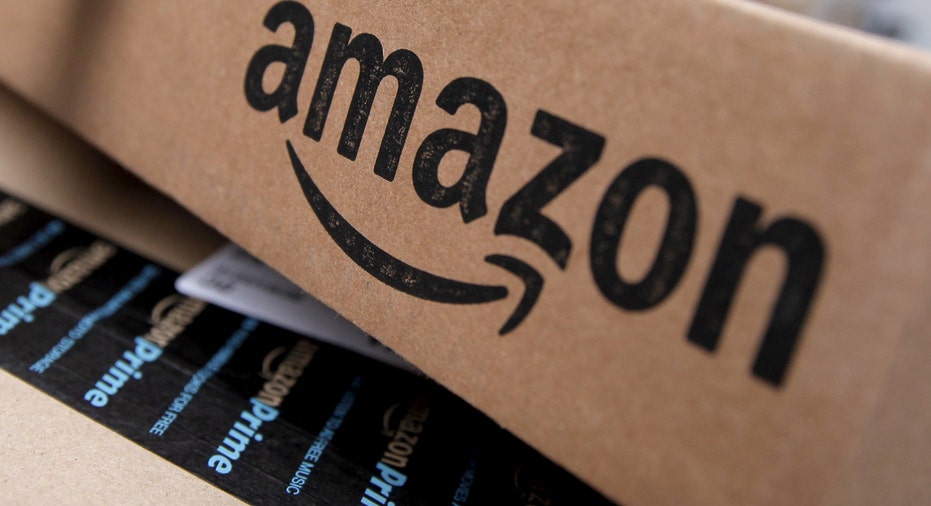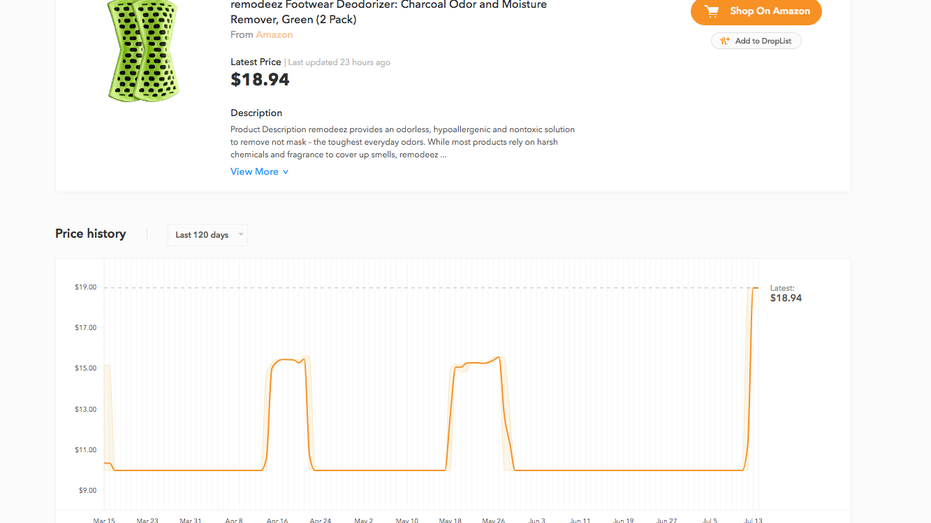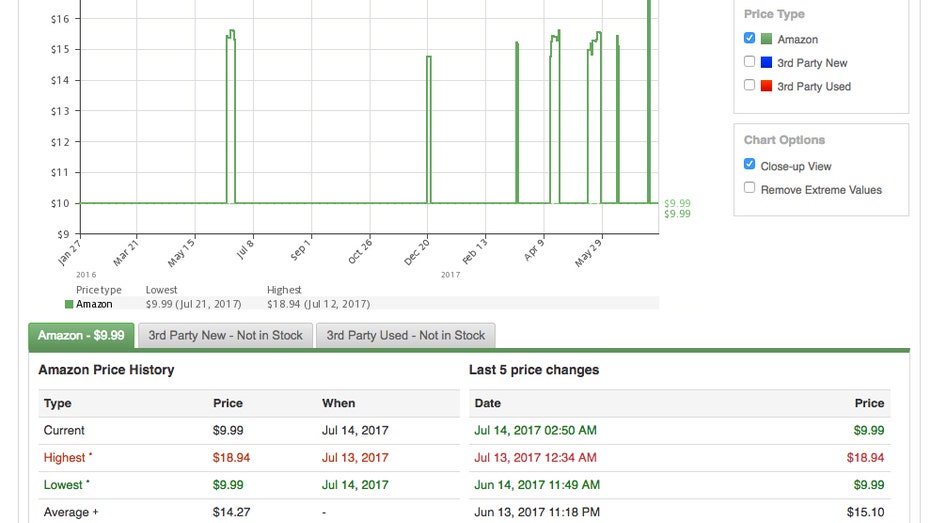Amazon jacked up Prime Day prices, misleading consumers, says vendor

*Updated July 25th 8:35 am
A Charlotte-based startup says e-commerce king Amazon (NASDAQ:AMZN) jacked up their suggested retail price during the company’s annual discount event—Prime Day—to deceive consumers into thinking that they were getting a deal, when in reality, they weren’t.
Jason Jacobs, founder of Remodeez, a small company that specializes in non-toxic foot deodorizers and other odor stoppers, says he had an agreement with Amazon since 2015 on a suggested retail price of $9.99 for his products and was shocked after the tech giant almost doubled that on Prime Day to make it look like people were getting a discount, when they were actually paying full price.
“They showed the product at $15.42 and then exed it out to put ‘$9.99 for Amazon Prime Day.’ And on the final day, the price was like $18.44. So, we put a support ticket in right away and I rallied some friends through social media to go to their complaint board and complain,” Jacobs tells FOX Business.

Jacobs says the suggested retail price came back down to $9.99 the following day. As part of Jacobs’ agreement with Amazon, the online retailer does have the right to set their own pricing as they see fit, he says.

“We have an agreement, it’s an online form, where we come up with the price that I’m selling the [items] to Amazon for and then they got 2% damage hold back, 10% marketing hold back, and they kind of chip away at that. And then we say here is the suggested retail price and we all agree on that, but the vendor [me] cannot mandate a price, you can’t price fix,” he adds.
An Amazon spokesperson tells FOX Business that “Amazon does not engage in surge pricing. We always seek to meet or beat the lowest price. We obsess over the things we believe customers will always care about--low prices, vast selection, and fast delivery--and work hard to provide all three, all the time."

Still, after the Prime Day incident, Jacobs says he took a closer look at the pricing of his products since he started selling with Amazon LaunchPad in November of 2015 and he now believes the company also does demand-based pricing, also known as customer-based pricing, meaning they bump up the price of a product as soon as they start seeing it in high demand.
“I started looking back through history and found seven different times over the last 12 months that this happened. Each one of them correlate to being in BuzzFeed four times, or on Forbes.com, and with each one of these, there was a spike [in price],” he says.
In one case last year, Jacobs says BuzzFeed featured Remodeez' foot deodorizers as a new product must-have, linking to Amazon’s page for customers to snatch it at $9.99 but as soon as people started clicking the price climbed to $15.
"It’s not like they’re bumping it by a buck and making a little bit more money. They are really tanking sales and it kind of has a ripple effect to us, being a small company trying to do demand planning,” he says.
Jacobs says he has contacted both Amazon PR and Amazon’s director and global head of Amazon Launchpad regarding the issue but has yet to hear back.
Last week, Reuters reported The Federal Trade Commission is looking into similar allegations against Amazon regarding discount-pricing policies misleading consumers—a concern that was raised by the advocacy group Consumer Watchdog earlier this month.
“We did two studies that patterned Amazon using bogus prices to create the impression that people were getting a discount when their ‘was’ price never was. Our survey in June examined 1,000 products on the retailer’s website and found more than half (61%), had ‘was’ prices that never were,” John M. Simpson, consumer watchdog privacy project director, tells FOX Business.
Simpson says Amazon is breaking Section 5 (a) of the FTC Act that prohibits "unfair or deceptive acts or practices."
An Amazon spokesperson, however, tells FOX Business that "The study issued by Consumer Watchdog is deeply flawed, based on incomplete data and improper assumptions. The conclusions the Consumer Watchdog group reached are flat out wrong. We validate the reference prices provided by manufacturers, vendors, and sellers against actual prices recently found across Amazon and other retailers."
CJ Rosenbaum, a New York based attorney who represents Amazon sellers, tells FOX Business that the company has settled claims in the past regarding allegations of Section 5 and adds that if this complaint is true, it goes against everything the company stands for.
"The funny thing about deceptive price discounting is that it flies in the face of Amazon's philosophy of 'customer obsession.' Amazon has 14 'Leadership Principles' that include its main one: obsess over the customer. Start with the customer and work backwards...is one of Amazon's mantras. Deceptive price discounting is opposite of that policy....of what Amazon claims to stand for. Deceptive price discounting tricks customers. It is the opposite of focusing on the customers,” Rosenbaum says.
Rosenbaum says Amazon does not have total control over prices, which are often set by third party sellers and companies that use algorithms to constantly raise and lower prices.
"Amazon sellers sign up for and pay for services to monitor inventory, demand and pricing and then adjust the prices of their products. But, even in this scenario, Amazon has the resources to address the issue...not the sellers who are simply trying to compete,” he adds.
Aaron Kelly, an Arizona-based attorney who also represents Amazon sellers, tells FOX Business while he has never heard of this tactic from Amazon, he has seen it from independent sellers “on occasion.”
“It’s strategy called ‘Price-anchoring.’ It’s pretty common across the board. Now as far as it being against the law or breaking any rules or regulations, it could be considered false and deceptive marketing under the FTC Section 5,” Kelly adds.
Jacobs says by speaking out against Amazon he carries “the risk [of them] squashing him for making noise,” but says it is worth it to bring the issue to light.
“I don’t think they are being malicious about it, it is just something that they need to tweak," he says.



















